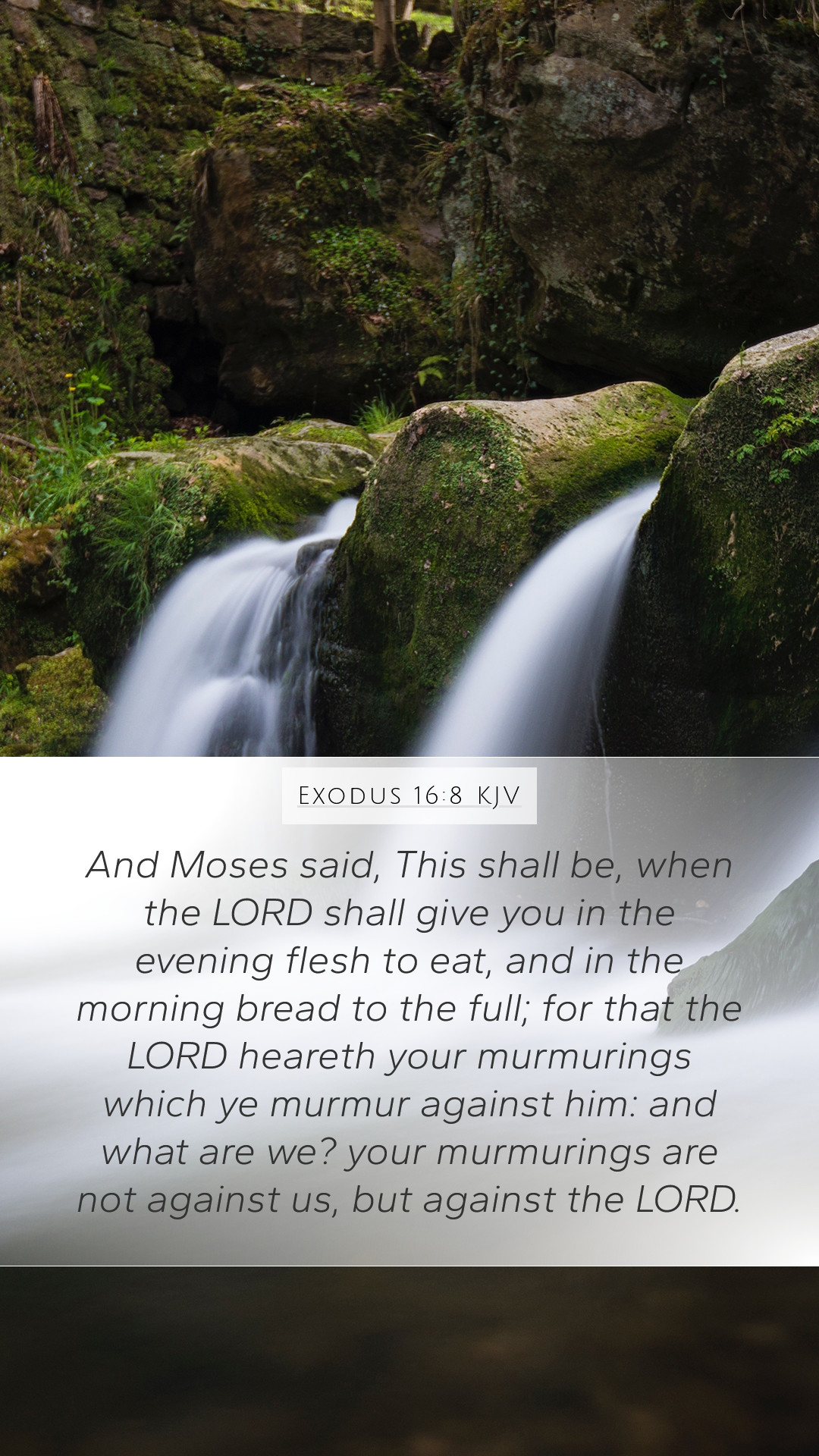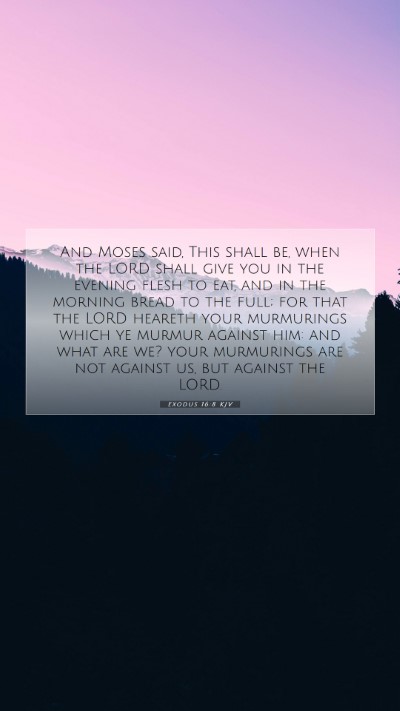Understanding Exodus 16:8
Exodus 16:8 states, "And Moses said, This shall be, when the Lord shall give you in the evening flesh to eat, and in the morning bread to the full; for that the Lord heareth your murmurings which ye murmur against him: and what are we? your murmurings are not against us, but against the Lord." This verse encapsulates the theme of divine provision and human discontent.
Bible Verse Meanings
The text serves as a critical reminder of God’s attentive care towards His people, despite their complaints. The Israelites were in the wilderness, experiencing hardships and expressing dissatisfaction with their circumstances.
Bible Verse Interpretations
According to Matthew Henry, this passage highlights two main points: God's readiness to provide for His people based on their needs, and the inappropriate nature of complaint against God, which reflects a lack of faith. Albert Barnes emphasizes the importance of recognizing the source of our sustenance, attributing it directly to God’s generosity. Adam Clarke adds that the murmuring serves as a call to self-examination about the attitude and expectations one holds towards God.
Bible Verse Understanding
- Divine Generosity: This verse underlines God's willingness to meet physical needs, illustrating His mercy and providence.
- Human Responsibility: It also raises questions about human behavior, urging believers to grapple with their discontent and complaints.
- Community Reflection: The murmuring referenced suggests a collective attitude, prompting communal reflection on trust in God.
Bible Verse Explanations
This scene effectively conveys the reality of God’s relationship with His people: while they faced tangible needs, their focus should have been on God’s past deliverances and future provision. The Lord’s response, as communicated by Moses, serves to redirect their attention from complaint to gratitude and anticipation.
Bible Verse Commentary
The commentary on Exodus 16:8 underscores that the murmuring of the Israelites represents a deeper spiritual ailment - a failure to trust in God's goodness and provision. God's promise of meat in the evening and bread in the morning acts not only as sustenance but also as a covenantal affirmation of His commitment to His people.
Lessons for Bible Study Groups
This verse provides numerous insights for Bible study groups, encouraging discussions on themes of provision, faith, and the nature of complaints towards God. It serves as a springboard for conversations about how believers can reflect on their attitudes in difficult situations.
Applying Scripture Analysis
For those seeking Bible study materials or resources, the analysis of this passage can be applied to daily life, helping individuals to reassess their outlook when facing challenges. It is crucial to recognize how our own 'murmurings' might reflect deeper issues of trust and reliance on God.
In-depth Bible Verse Analysis
Analyzing the historical context, the Israelites had recently escaped slavery in Egypt yet were quick to complain about their circumstances in the wilderness. This indicates a pattern of forgetfulness regarding God's past deliverances. Historical context contributes significantly to understanding their mindset and the lessons that can be drawn for modern believers.
Cross References
- Philippians 4:19 - God's promise to supply all needs.
- John 6:35 - Jesus as the Bread of Life.
- Psalms 78:19-25 - Remembering Israel's past complaints and God's provision.
Conclusion
In exploring Exodus 16:8, one discovers profound truths about dependence on God amid life's trials. This passage encourages believers to maintain a posture of gratitude and trust, reinforcing that everyday complaints can lead to spiritual barrenness if not addressed constructively. Embracing God's provision and guidance becomes essential in nurturing a faithful heart.


